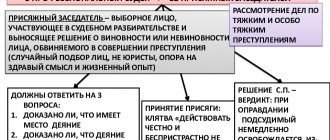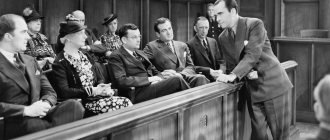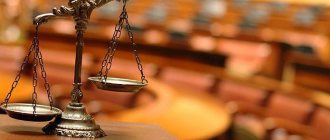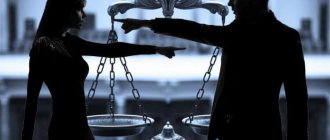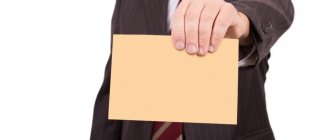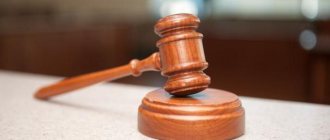Multi-channel free hotline Legal advice on criminal law. Every day from 9.00 to 21.00
Moscow and region: +7 (495) 662-44-36
St. Petersburg: +7 (812) 449-43-40
When they join
The form of judicial proceedings, which was first discussed in our country during the time of Catherine II and which was lost after the onset of Soviet power, returned to court practice in 1991. However, her return is incomplete. Jury trials returned exclusively to cases of a criminal nature.
Two regulations define the conditions for attendance at hearings and participation in the jury’s decision:
- Federal Law (Federal Law) number 113 “On jurors” as amended on September 1, 2017;
- Criminal Procedure Code of the Russian Federation.
They consider who can serve as a jury, when their convening is necessary and other organizational issues.
Who are the jurors in a criminal trial? These are individuals chosen by “random selection” from ordinary citizens. Of course, they must meet certain criteria established by the legislator. These people are appointed to involve in the proceedings of certain categories of cases considered in accordance with the Criminal Code of the Russian Federation. Their task is to decide whether the subject is guilty of the charge brought against him.
Jurors do not become participants in trials in all court cases. They are in charge of criminal cases, and of categories in which the accused faces punishment when he is deprived of liberty for a period exceeding 10 years.
These may be proceedings under the following articles:
- murder;
- mercenary work;
- ecocide;
- genocide;
- banditry;
- other similar crimes.
At the same time, the question of the presence of jurors at the hearing largely depends on the defendant.
In order for the fate of a subject on trial to be decided by a jury, it is necessary that a petition be submitted on his behalf to involve them in the trial. If such a document reaches the presiding judge, a meeting is scheduled at which this issue is considered. As a result, a determination is made on the legality or illegality of the presence of assessors during the proceedings.
It is important to remember: when the court has ruled that the presence of a jury in a given trial is legal, its ruling does not have retroactive effect.
This means that if the defendant has a desire to refuse such justice, he will not be able to do so. His case will now be considered with the participation of assessors anyway.
In a situation where a group of people is accused, a petition from one of them is sufficient to attract assessors.
When among the others there are opponents to the presence of additional participants in the process, they can petition to separate their case into separate proceedings. If this cannot be done, the trial will still be held with the participation of a jury.
Personal jurisdiction
A panel of jurors can also participate in the consideration of criminal cases by district (naval) military courts (Article 28 of the Federal Constitutional Law of June 23, 1999 No. 1-FKZ “On Military Courts of the Russian Federation” We have already completed course work
The concept and system of civil legislation. Regulatory legal acts of the Ministry of Defense of the Russian Federation in more detail). In this case, the same rules for determining subject jurisdiction apply: military courts hear cases of crimes committed by military personnel or persons undergoing military training (Part 6 of Article 31 of the Code of Criminal Procedure of the Russian Federation).
Functions
As mentioned above, juries serve only in a number of criminal cases.
These are crimes that have jurisdiction over the following courts:
- regional;
- supreme regional;
- courts of federal cities;
- other courts of similar importance.
This in itself means that the case is being considered by a judicial panel. The question arises as to why the participation of jurors is necessary in the proceedings, where the decision is already made collectively and not individually. The answer lies in some differences in the functions of the bench and the jury.
It should be borne in mind that people of a wide variety of professions become jurors; in most cases, they are not legally savvy.
Their choice of solution is determined by ignorance of legal norms, but only by their own ideas that they developed during the proceedings. That is, their verdict is a product of feelings and emotions.
These factors determine the functions that the legislator has assigned to the jury.
The difference between them and judges is this:
- The jury must answer the question of the guilt/innocence of the accused.
- The judge, who knows the legal norms, decides all other issues, for example, the question of the punishment.
The jury can make their choice based on everything said in the courtroom, but the judge has the right to rely only on legally correct positions and evidence. The jury court of the Code of Criminal Procedure of the Russian Federation vested special powers, the range of which is limited in Article 334.
In accordance with it, the jury must answer three questions:
- whether a crime actually took place;
- whether they agree that the accused participated in a criminal act;
- whether he is guilty, from their point of view, of committing this offense.
What legal consequences occur depending on the decision made by the jury is determined by the judge presiding over the trial.
Territorial jurisdiction
There are no special rules for determining the territorial jurisdiction of a jury; the general rules of the Code of Criminal Procedure of the Russian Federation are applied to determine the jurisdiction of a case to the corresponding regional (territorial) court:
- at the place where the crime was committed (part 1 of article 32 of the Code of Criminal Procedure of the Russian Federation)
- at the place where the crime was completed (Part 2 of Article 32 of the Code of Criminal Procedure of the Russian Federation)
- at the place where most of the crimes in the criminal case were committed (Part 3 of Article 32 of the Code of Criminal Procedure of the Russian Federation).
- at the place where the most serious crime in the criminal case was committed (Part 3 of Article 32 of the Code of Criminal Procedure of the Russian Federation)
- at the place of residence (stay) of the victim or accused of a crime committed outside of Russia (Part 4 of Article 32 of the Code of Criminal Procedure of the Russian Federation).
In this case, the general rules on changing territorial jurisdiction are applied (Article 35 of the Code of Criminal Procedure of the Russian Federation).
Rights and obligations
In each region, lists of citizens who can be invited to participate in the trial have been compiled in advance.
Such lists include those individuals who are “suitable” for a given role based on a number of indicators:
- age (at least twenty-five years);
- criminal record (more precisely, its absence, which has not been expunged or expunged);
- legal capacity (the court found that the candidate is fully capable);
- absence of addiction to drugs, alcohol, etc.;
- mental balance, i.e. absence of mental disorders.
These criteria are always taken into account when selecting jurors.
Additionally, depending on the individual case, a person may be rejected as a candidate for jury service if:
- unfamiliar with the language used in the courtroom;
- there is suspicion or confidence that the subject is involved in any crime;
- deficiencies in physical health or mental health have been discovered that do not make it possible to comprehensively consider and evaluate the case.
If at least one of the listed conditions is present, then the citizen is removed from the list of jury candidates. Military personnel, priests, and people who are already sixty-five years old cannot serve as jurors.
Twelve people are selected from a list of candidates for a particular case. This figure is relevant today. According to upcoming changes in judicial legislation, the number of jurors may be reduced. In addition to the main twelve people, at least two reserves are appointed.
Jurors included in both the main list and the additional list have the right to:
- study the case materials in detail;
- examine all evidence in the case presented to the court;
- make notes for yourself and your thoughts;
- receive from the presiding judge, upon request, clarification of any legal issues;
- find out the circumstances from the participants in the process through the presiding officer;
- receive financial compensation provided by the legislator for the fact that he cannot be present at the workplace during the trial;
- declare your challenge if there are valid reasons from the point of view of the law.
These rights are ensured by the legislator and are recorded in Chapter 42 of the Code of Criminal Procedure.
The law imposes a number of special duties on jurors:
- Do not leave the courtroom while the hearing is in progress.
- Keep your opinions to yourself until the jury deliberates on the subject's guilt.
- Keep the proceedings confidential.
- Do not conduct your own research on the case.
- Attend all meetings on the case.
- Do not discuss case materials with those who are not in any way connected with the court.
- Each member of the board is required to take an oath.
If for any reason a candidate juror is unable to fulfill his obligations and knows it, he must notify the judge in advance in order to obtain a challenge for cause.
College education
The formation of a jury in a criminal trial is a special sequence of actions in judicial practice, which is strictly regulated by the legislator.
In order to assemble the required number of jurors, it is necessary to prepare lists of candidates in advance.
In accordance with these lists, citizens are invited to the courtroom, where the presiding officer makes a short report on the following issues:
- getting to know the parties to the process;
- an explanation of the nature of the criminal proceedings;
- announcement of the approximate duration of the proceedings;
- clarification of the purpose of attendance at the jury meeting.
In addition, the judge will explain to candidates their right to recuse themselves and their responsibilities.
The next stage is the consideration of self-recusations, of which there are a large number. The judge is obliged to satisfy them, regardless of whether there are good reasons for doing so or not. No one is obliged to become a participant in the proceedings in court if he is in no way connected with the case.
The procedure then consists of a discussion of each candidate for jury position.
Let us note that Art. 328 (Code of Criminal Procedure of the Russian Federation) describes all the stages provided for this process:
- questions from the parties to candidates in order to find out the reasons that may serve to disqualify a candidacy;
- announcement of information about a specific candidate and discussion of it;
- statement of the parties to challenge for legal reasons;
- consideration by the judge of challenges of candidates from one side or the other, if they are motivated;
- consideration of unmotivated challenges if there are more candidates than necessary for the trial (the accused party is heard first);
- entering the list of jurors into the protocol.
If during the procedure a problem arises in the insufficient number of jurors, another meeting is scheduled, to which candidates from the additional list are invited. The procedure is repeated again.
After the list of twelve jurors has been announced and alternate jurors have been named, they are asked to take special seats. The entire process takes place in a meeting, which is held behind closed doors.
When a case involves a secret of state importance, each juror is required to sign a non-disclosure agreement. Refusal of such a subscription is a reason for disqualifying a juror and replacing him with an alternate.
In order to streamline the process of jury participation in a case, the legislator decreed the need to select the eldest among them. He is elected by the board members themselves by simple voting. It is through him that the jury will convey their questions and wishes to the judge.
Features of defense in jury trials
- Introduction
- Specifics of the activities of a defense attorney in criminal proceedings with the participation of jurors
- Preliminary hearing
- Legal proceedings: at the preparatory stage
- Selection of jurors
- Imperfections in the procedure for forming a panel of jurors
- Actions of a lawyer in case of dissatisfaction with the personalities of juror candidates
- Investigation in court with jurors
- Arguments in court with jurors
- Collision protection
- Issues decided by juries
- Summary
Introduction
| Articles of the Constitution of the Russian Federation | Content |
| Article No. 123, part 4 | Regulates the trial with the participation of jurors in cases provided for by Federal legislation. |
| Article No. 30 of the Code of Criminal Procedure of the Russian Federation | Regulates the right of a convicted citizen to have his case examined by a jury in the case when the citizen is accused of serious crimes and crimes of special gravity, where a prison term of more than fifteen years is possible, as well as life imprisonment and the death penalty. |
| Article No. 47, part 2, No. 56, part 3 | They grant this right to a jury and prohibit restrictions on this right, even in a state of emergency. |
When discussing the features of a jury trial, one cannot ignore the exhaustive description of jurors given by A.F. Horses. He rightly believed that jurors “represent a specific, finely tuned, receptive organism” that should not turn away from the specific situation of an individual citizen, “notice something typical in it and always examine the acts and qualifying features.”
In order for a criminal case to be heard by a jury at the time of its final hearing, the defendant must write a statement stating his desire to do so. The investigator is obliged to inform him about this.
The investigator is obliged, even at the familiarization stage with the details of the materials of the criminal case, to convey to the convicted person information about his right to apply for a trial in the presence of a jury. If a negative response to the petition is received, then in the future the accused will no longer be able to change his decision and write a statement of consent to a jury trial.
Important information! The accused's lawyer is obliged to monitor whether the accused wrote a petition voluntarily and, before writing it, to discuss in detail with his client all the nuances, so that the accused is not in a state of uncertainty and does not experience hopes that are not actually supported in any way.
Specifics of the activities of a defense attorney in criminal proceedings with the participation of jurors
The nuances of a lawyer’s professional work in a jury trial depend on the specifics of the decisions made by the court at the stage of each trial.
For example, if the accused expresses a desire to participate in the jury trial, then the defense attorney is obliged to explain in detail to him all the variety of requirements from the law that must be fulfilled.
The accused must understand:
- Nuances and features at the preliminary hearing.
- The need for the presence of the convicted person at the preliminary hearing stage in the event that he does not express a voluntary refusal.
- The nuances of forming a jury and the reasons contributing to its dissolution or replacement.
- The specifics and nuances of the investigative process, with the participation of assessors.
- Specifics and nuances of appealing and protesting the decision of the jury in the cassation chamber.
Keep in mind! It should be understood: if several people are accused at once, then the fact of a petition from one of the convicted persons with a request to consider the case by a jury automatically extends to the other convicted persons in the case. They, too, will face a jury trial. Therefore, it is advisable to discuss this situation among ourselves in advance.
The lawyer does not need to impose his judgment on the client regarding the reasonableness/unreasonability of writing a petition, with a request to consider his case by a jury. The lawyer needs to direct the vector of his client’s attention to the presence in his cases of positive nuances that are clearly beneficial for their presentation to the jury, for example:
- if it is obvious that the entire evidence base is missing;
- when the evidence base is incomplete, when it cannot be replenished in any way;
- in case of a biased investigation, even at the preliminary level of investigation;
- if the evidence presented against the accused, which was obtained illegally, is inadmissible;
- if there are positive characteristics of the accused;
- provided that the crime was committed by the accused person for the first time, when exposed to an extraordinary and emergency situation;
- in the presence of strong evidence of clearly provoking behavioral actions on the part of the victim, etc.
Preliminary hearing
During this hearing, the lawyer must spend time challenging the evidence presented. According to the text of Article 235 of the Code of Criminal Procedure of the Russian Federation: in the case when evidence is excluded from the case, then it will be impossible to refer to it in a jury trial and it is also impossible to inform the jury about it.
In the event that the defense attorney, for various reasons (for example, for reasons of tact), does not file a motion to remove from the case inadmissible evidence obtained by violating the law, the defense attorney is obliged to file this motion during the trial, even at the level of the preliminary hearing. Or, if such a petition is filed, and the investigator decides to reasonably reject it, then the lawyer is obliged to demand that it be filed in court, even at the preliminary stage.
Important! The defense attorney must be extremely motivated and be able to explain why he considers this or that evidence inadmissible; and in what way, in his opinion, the law was violated in the methods of obtaining them.
Legal proceedings: at the preparatory stage
The peculiarity of the preparatory part of the legal process, which involves the presence of a jury, is that it is carried out in two stages:
- 1st stage – in the absence of citizens participating in the jury;
- Stage 2 – in the presence of citizens participating in the jury.
At the first stage, procedural issues are resolved that have nothing to do with the jurisdiction of the jury. At this stage, the question of the possibility of their participation in a specific criminal trial is decided.
At this stage, the lawyer retains all the rights to exercise: calling new witnesses, various experts and the necessary specialists. The lawyer retains the rights to: request written and material evidence; on the exclusion of illegal evidence of the prosecution, which was obtained by violating the Criminal Code and the filing of various petitions, in particular, on recusals.
At the first stage of preliminary proceedings, the lawyer must carry out work initiating measures aimed at creating opportunities for a fair decision by the jury. It is precisely this measure that is considered to be raising the question of changing the preventive measure for a convicted person - to a lighter one.
Detention requires special conditions for the presence of the accused citizen in the courtroom, namely: his delivery under escort; his presence in the courtroom, in a way of isolating him from all those present.
The fact is that such detention and escort can have a negative effect on jurors, first of all, from a psychological point of view: this creates in them a deliberately biased attitude towards the accused person.
Such detention gives rise to hostility towards the perpetrator, even before he is convicted. Even if his guilt has not yet been proven. This point can significantly distort the jury’s impression of the accused and, accordingly, provoke them to make an unfair and biased decision.
In addition, the opinion of the jury can be influenced by various external factors, such as: loud cries of the accused, curses on his part, his behavior, appearance and way of holding himself, turns of speech, literacy of speech, movements and much more.
Keep in mind! Jurors are ordinary people who do not have experience in all the nuances of jurisprudence. They judge by purely external characteristics. Knowing this, the lawyer is obliged to adjust as much as possible, in a positive direction, the behavioral and speech characteristics of his client.
It is not possible to completely free the jury from the bias that is caused by escort and detention in custody. After all, the court, with the participation of a jury, deals with complex criminal cases accusing citizens of committing especially serious acts.
Therefore, we must try to reduce the number of prisoners in custody at one time in the courtroom when cases are being tried with a jury.
We should strive to ensure that, with the participation of a jury, only those citizens in respect of whom there are already official justifications are taken into custody, without taking into account solely the severity of the crime they committed.
It is important! In the situation of a negative verdict regarding changing the preventive measure by the jury, the lawyer must re-file the petition in order to present his client before the jury, without armed escort and handcuffs.
This is precisely what the entire modern practice of European judicial proceedings for the protection of human rights is oriented towards. The European Court considers it absolutely insufficient for only a one-time consideration by the court of questions about the legality and validity of a citizen being under escort to protect his rights. The European Court clearly states that every citizen held in custody is required to have a legal opportunity to initiate proceedings in order to challenge the legality of his presence in custody.
At the second stage of the preparatory stage, at the court hearing, the following is carried out:
- selection of candidates for participation in the jury;
- approval of the jury;
- oath of jury members.
Selection of jurors
A lot directly depends on the composition of the jury: first of all, the fairness of the final verdict regarding the guilt/innocence of the accused citizen, as well as the decision on whether leniency is possible in relation to the accused person.
Important! At the stage of creating a jury, the lawyer and his client are given the opportunity to address to the assessors all the questions that interest them. The need for these questions is connected with only one task: to establish and understand whether the assessors have any dependent opinion that inclines them to the guilt of the accused person.
According to the letter of the law, the entire system of forming a jury is obliged to guarantee as much as possible the participation in it of impartial, fully reasonable and fair citizens. Individuals capable of making an objective decision based solely on honesty, objectivity and integrity.
If the jury forms a dependent opinion, this contributes to the creation of an accusatory attitude already on a subconscious level. This accusatory attitude finds its manifestation in the fact that the jury begins to actively hear only the accusing side, in fact, completely ignoring the arguments of the lawyer.
Such biased and biased sentiments of the board, which, first of all, should be influenced by the defense attorney in a jury trial, are characteristic of the following category of people:
- members of the jury who suffered from a similar criminal act (or their family members and friends were victims),
- members of the jury who in their hearts approve of the use of the death penalty,
- jury members who are prone to being influenced by generally accepted stereotypes in society.
Having handed over the lists of jury candidates to the defense and prosecution, the court is obliged to provide all the explanations of the rights and the consequences of ignoring them.
The chairman judge is obliged to explain to the defense and the prosecution the content of the rights that are regulated by the Code of Criminal Procedure of the Russian Federation, Art. No. 64, part 1, as well as the consequences if these rights are ignored, namely:
- the right to file a reasoned challenge against a future member of the jury;
- The defense attorney in a jury trial and his client have the right to unmotivated challenge of any member of the panel. This challenge can be carried out by any of the participants two times;
- the right to submit an application with a request to dissolve the panel of assessors due to their great bias;
- the right to express one’s dissatisfaction regarding the meaning and presentation of questions; and the right to formulate questions to be considered by the jury;
- the right to express dissatisfaction regarding the meaning of the parting remarks of the presiding person, who violated the principle of an impartial and objective approach;
- the right to speak in the debate, at the end of the process, as well as in the process of analyzing the results of the decision, etc.
It should be understood that the mission of a lawyer, at the time of formation of the jury, is to influence its members. Therefore, in order to avoid unfair treatment of his client by the jurors, the lawyer is obliged to demand the challenges of those juror candidates who work in the law enforcement field and, at the same time, challenge all citizens loyal to law enforcement officers.
Keep in mind! Failure to request the challenge of one of the jurors will then deprive the lawyer of the right to invoke that juror's manifest bias. When filing a reasoned challenge, the defense in a jury trial is obliged to pay attention directly to the motive, forming it in a specific and clear form. This convinces the presiding court of the importance of his positive decision.
It should be understood that the absence of clearly formulated requirements for the list of jury candidates will most likely lead to a simplification of the content of the list and to minimizing the lawyer’s information about these persons. Therefore, the stinginess of information about the personality will prevent the lawyer and his client from qualitatively preparing for the oral examination and making a conclusion about the personality quality of each of the candidates for the jury.
Obvious flaws in the jury selection process
The lawyer has no other methods to obtain information about each member of the jury, unlike the prosecutor: thanks to state powers, the prosecutor has a much wider range of possibilities.
Accordingly, while having the same legal rights as the prosecution in the process of forming a jury, the defense attorney does not have equal opportunities to use them.
Obvious flaws in the procedure for forming a jury also lie in the fact that the lawyer and client do not have enough time for a detailed and consistent preparatory period for the upcoming familiarization with candidates for the jury.
The defense in a jury trial does not have enough time to think about and prepare for motivated/unmotivated challenges by jurors. The current practice of criminal trials suggests that in order to carry out such fundamentally important actions, the lawyer is allocated a very short period of time, almost calculated minute by minute.
Often, this is why candidates for jury service present false and invalid information about themselves: this may serve as a reason for overturning the court’s decision.
Note! For comparison, it will be interesting to see how members are selected for juries in America. In the USA, in order to select worthy members of the jury, consultants work together with lawyers. They use modern and well-proven scientific tactics and techniques to select jurors.
In order to obtain specific information about the personal characteristics of the members of the jury, the lawyer studies the questionnaires filled out by the candidates in order to ask them questions that he may have (Code of Criminal Procedure of the Russian Federation, Art. 328).
Actions of a lawyer in case of dissatisfaction with juror candidates
In the event that a lawyer, after studying the questionnaires, asks questions and receives clearly unsatisfactory answers, the defense in a jury trial, and his client, must submit a reasoned request for recusals. The lawyer and the accused also have the right to an unmotivated challenge.
There must be at least twenty jurors. If, after motivated challenges, there are more than 14 of them left, then the state prosecution gets the right to an unmotivated challenge first, and only then does the defense.
According to the Code of Criminal Procedure of the Russian Federation, Art. 330, a defense attorney has the right to request a complete dismissal of the entire jury only if he believes that the level of complexity of the case being considered does not correspond to the level of objectivity of the jury presented.
Such a petition is always discussed in detail in the conference room and then the court either grants it or not.
Important! A lawyer's motion may be submitted strictly before the jury is sworn in.
The defense attorney is obliged to strictly ensure that the number of jurors removed includes:
- candidates for jurors who belong to a completely different social group than the one to which the accused belongs. Then, they will certainly be able to understand his motivation and psychological basis;
- candidates from among officials. They, due to their duty, are focused on a bureaucratic and official approach to the fulfillment of any civic duty;
- citizens who have repeated experience in the everyday application of legislation: a beginner will always be more sensitive to the letter of the law than a person with extensive experience in this;
- in cases involving rape and murder, where the victim is a child, it is necessary to challenge persons with children. This especially applies to women.
Judicial investigation
During a judicial investigation in a jury trial, in contrast to a regular trial, special attention is paid to psychological contact with the jury. Therefore, the lawyer’s ability to speak eloquently and know certain psychological techniques plays a huge role. Only these skills, demonstrated in a jury trial, can really help the defendant.
Therefore, the defense attorney is obliged to study the materials of the criminal case in detail, with the specific purpose of:
- challenging in court proceedings the admissibility, reliability and sufficiency of the evidence base, as well as the compliance with the law of the charges brought against one’s client;
- a statement about the fact of a biased investigation, without a sufficient examination of all the circumstances of the case that could justify the defendant or mitigate his guilt;
- putting forward and elaborating defensive versions of the circumstances of the case that can fully/partially exonerate the convicted person, or mitigate the degree of his responsibility.
The defender is obliged to confirm the objectivity of his statements with the help of evidence collected by him in accordance with Art. 86 Code of Criminal Procedure of the Russian Federation.
During the trial, in the presence of the jury, only that evidence is examined with the help of which the main questions about the factual side of guilt are resolved:
- Has it been proven that this act took place?
- Has it been proven that it was the accused who committed it?
- Is the defendant guilty of this act?
- Does he have the right to leniency and special leniency?
After posing the main question about the defendant’s guilt, the lawyer raises specific questions regarding the degree of guilt or changes in its nature. This may lead to the acquittal of the defendant.
Keep in mind! In order for the jury and the judge to form the correct inner conviction on all issues of the defense lawyer, they must understand the position of the defense from the very beginning of the trial. To do this, the lawyer is obliged to prepare with the client: so that, at the beginning of the trial, he briefly and clearly outlines the essence of the defense position. The first impression of the accused in the courtroom is very lasting and important for gaining the trust and favor of the jury towards him.
In court, the principle of competition is very important: the study and evaluation of the evidence by the jury occurs exclusively in the mode of competition between the defense and prosecution.
The participation of a lawyer in the trial consists of 2 stages: each such stage implies its own subject of proof and its own range of possible evidence.
At the first stage of the trial, the subject of proof is formed by such circumstances as:
- place,
- time,
- method of crime
- the nature and extent of the damage caused,
- reasons for the crime,
- any other circumstances that allow the jury to objectively answer the questions put to them.
Any judicial investigation begins with the opening statements of the lawyer and the prosecutor. This is necessary, first of all, for the jury: so that they have an idea simultaneously of both the concept of the prosecutor and the concept of the defense attorney.
Important! The lawyer’s statement must consist of 2 parts: a statement previously agreed upon with the client, the position on the charges brought against him and proposals regarding the judicial procedure for examining the evidence base. Accordingly, unlike in a regular court, in a trial with a jury, the lawyer must indicate his position on the charges brought against him.
The mission to comply with the procedure for examining the evidence base is entrusted to the presiding judge: he is obliged to remove from the examination evidence that, although relevant to the case, is clearly beyond the powers of the jurors.
It is strictly forbidden, in a trial, to examine: the facts of the defendant’s previous criminal record, his recognition as an alcoholic and drug addict, so as not to cause the jury to have a negative attitude towards the defendant.
The task of the jury is only to examine the evidence of the defendant’s guilt in committing this particular crime. Therefore, information about the defendant should be examined by the jury only to the extent that it is necessary for them to understand the elements of the crime with which he is currently accused.
All the nuances of judicial proceedings, in court with a jury, are regulated by Art. 335 Code of Criminal Procedure of the Russian Federation.
In front of a jury, decisions should not be analyzed based on procedural issues, such as: a decision to initiate a criminal case, a decision to charge a person as an accused.
In the presence of a jury, one should not discuss and resolve issues and motions aimed at ensuring the conditions of judicial proceedings: bringing in victims, preventive measures, challenging participants in the process, etc.
In a word, it is strictly forbidden to discuss issues that do not directly concern the jury and may provoke their distorted and biased perception of the accused.
Judicial debate
Debates in court with the participation of jurors have their own characteristics. First of all, this is the division of the debate process into two levels, depending on the compensation of the jury and the professional judge when considering a criminal case.
The first level of debate is focused exclusively on issues that fall within the competence of the jury, namely: the proof of the act of the accused, the proof of the fact of committing a crime and his guilt in this act.
If the defendant is found guilty, the parties at this level consider issues related to the possible recognition of the defendant as deserving of leniency.
Important information! There is a concept of a ban on publicizing negative personal characteristics of the accused (for example, about his former criminal record, alcoholism, etc.). Unfortunately, this prohibition is often violated by the prosecutor. The lawyer should respond to this not simply with indignation, but by reminding the jurors that even in small things, the prosecution is breaking the law, treating it with no respect.
The defender does not need to get too carried away and present the client as almost an “angel”. The lawyer must objectively, without unnecessary emotions, paint a more or less real picture: this is what can inspire confidence on the part of the jurors.
Collision protection
Important features of defense in jury trials include conflict of laws defense. Conflict of laws defense is when there are several accused and, at the same time, their positions are diametrical to each other.
In this case, it is necessary to be aware of the ancient commandment, which says: “do not accuse while defending.”
The most acute moments in an adversarial criminal trial in court with a jury, for conflict of law defense, can arise when, on the basis of evidence, each accused, denying his guilt, imposes it on the other accused, as if slandering him. Then the jury can be confident that each of the defendants admitted guilt for the other defendant.
In court, with the participation of a jury, it is prohibited to ask interrogated questions aimed at clarifying the circumstances that expose the accused of an illegal act, or aimed at aggravating the extent of his responsibility.
Each formulation of a question is, in fact, an independent judicial stage. VC. Sluchevsky gave a clear definition of this stage, calling it “the decisive moment of the process.”
Important information! According to the results of the cassation history, in 2005, the main basis for the reversal of many court decisions made by the court in the presence of a jury is the illiterate and distorted formation of the question sheet by the presiding judge.
It is this stage that is of great importance: it prepares jurors to perform their functions, which are expressed in formulating an answer to the main question: is the defendant guilty or not guilty?
The judge does not have the right to refuse the accused and his lawyer to raise questions about the presence in the criminal case of specific circumstances that may exclude the defendant’s guilt for the act, or entail his responsibility for a less serious act.
The second stage of the trial, in the jury trial, is different in that, without the presence of a jury, the consequences of the decision are discussed.
Depending on the consequences of which particular verdict (guilty or acquittal) are being discussed, the issues in which the lawyer and the prosecutor participate also depend.
Keep in mind! In case of an acquittal decision by a jury, only a range of issues are subject to research and discussion, such as: distribution of legal costs and the fate of material evidence. Upon conviction, the presiding judge must provide the parties with the opportunity to examine evidence that cannot be examined in the presence of the jury; speak out about the content of the crime in the act, which the jury found proven, etc.
As the arguments continue, the defense and prosecution raise various issues of law that must be decided upon at sentencing. But, at the same time, both parties have no right to doubt and criticize the decision made by the jury.
Summary
Based on all of the above, the peculiarities of defense in a jury trial are due to the fact that jurors decide questions of fact completely independently. While issues of legal qualification, on the basis of these facts established by the jury, are decided by the judge who presides over a specific criminal case.
Accordingly, the role of a defense attorney in a jury trial can be performed efficiently only if the lawyer has excellent knowledge of the entire procedural order of the trial with the participation of a jury, his excellent abilities in oratory, psychological knowledge and much more that should be in the arsenal of working tools of a real defense attorney.
More articles by lawyer Astafiev
21.02.2022
Lawyer defended woman from eviction from apartment
Housing lawyer Vyacheslav Astafyev defended the woman from the district administration’s claim for eviction, achieved recognition of her as a member of the tenant’s family, and through the court ordered the administration to conclude a social rental agreement for an apartment with the woman.
17.01.2022
What to do if the suspect incriminates himself? (VIDEO)
A lawyer in criminal cases involving drugs under Article 228 of the Criminal Code, using the example of a real criminal case, spoke about what to do if the suspect incriminates himself.
06.12.2021
A lawyer’s complaint to the prosecutor’s office helped bring the fraudster to justice
Based on a lawyer’s complaint to the prosecutor’s office, a manager of a commercial organization who forged a contract was brought to criminal liability for large-scale fraud (Part 3 of Article 159 of the Criminal Code of the Russian Federation).
Making a decision
When all the materials on the case are presented to the court and comprehensively considered, it is the jury’s turn to take active action to answer the question of the defendant’s guilt. To do this, the board goes to a room specially designated for the meeting.
Before this, they receive a parting word from the judge, in which:
- the defendant is called again;
- the essence of the crime is explained;
- the positions and arguments of the parties are noted;
- is reminded of the need for impartial judging by the jury.
It is prohibited for anyone not from the board to be in the deliberation room.
After discussing all aspects of the trial, the jury begins voting on each of three issues:
- whether there was a crime;
- whether the subject of the accusation participated in it;
- whether he is guilty of this crime.
Voting is open; refusal to vote is not allowed. The person chosen as chairman votes last.
Verdict
While answering the questions put to them, the jury at the same time does not have the power of the judge, since it is he who prescribes the sanctions that will be applied to the subject found guilty.
However, the jury's decision is of great importance to the defendant. The fact is that the acquittal pronounced by them is considered absolutely motivated and cannot be cancelled. This is exactly what defendants hoping for when they ask for a jury trial.
A subject is considered acquitted if, on the main issue (about his personal guilt), six or more jurors voted negatively, considering him not guilty of this crime.
If more than six people vote to find a person guilty, the verdict is considered not in favor of the accused.
However, you need to remember:
- such a decision is not considered absolute by the legislator;
- if the judge considers that there are grounds for its cancellation, the convicted person may be acquitted.
When the verdict of the jury reads: “Guilty,” they may express a desire to mitigate the punishment due to some circumstances.

